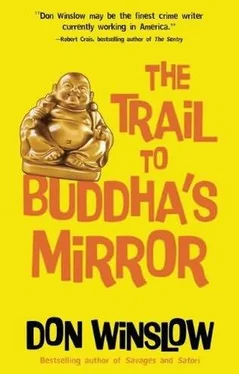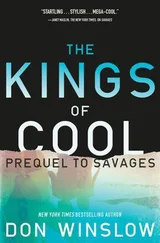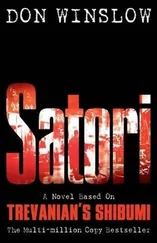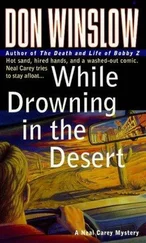Don Winslow - The Trail to Buddha_s Mirror
Здесь есть возможность читать онлайн «Don Winslow - The Trail to Buddha_s Mirror» весь текст электронной книги совершенно бесплатно (целиком полную версию без сокращений). В некоторых случаях можно слушать аудио, скачать через торрент в формате fb2 и присутствует краткое содержание. Жанр: Триллер, на английском языке. Описание произведения, (предисловие) а так же отзывы посетителей доступны на портале библиотеки ЛибКат.
- Название:The Trail to Buddha_s Mirror
- Автор:
- Жанр:
- Год:неизвестен
- ISBN:нет данных
- Рейтинг книги:3 / 5. Голосов: 1
-
Избранное:Добавить в избранное
- Отзывы:
-
Ваша оценка:
- 60
- 1
- 2
- 3
- 4
- 5
The Trail to Buddha_s Mirror: краткое содержание, описание и аннотация
Предлагаем к чтению аннотацию, описание, краткое содержание или предисловие (зависит от того, что написал сам автор книги «The Trail to Buddha_s Mirror»). Если вы не нашли необходимую информацию о книге — напишите в комментариях, мы постараемся отыскать её.
The Trail to Buddha_s Mirror — читать онлайн бесплатно полную книгу (весь текст) целиком
Ниже представлен текст книги, разбитый по страницам. Система сохранения места последней прочитанной страницы, позволяет с удобством читать онлайн бесплатно книгу «The Trail to Buddha_s Mirror», без необходимости каждый раз заново искать на чём Вы остановились. Поставьте закладку, и сможете в любой момент перейти на страницу, на которой закончили чтение.
Интервал:
Закладка:
The rich tend to live on the tops of the hills, of course, especially on “the Peak,” more properly called Victoria Peak, the oh-so-exclusive neighborhood founded by the early Western drug lords but later dominated by Chinese financiers. Your status on the Peak is determined by your altitude; the goal is to literally look down on your neighbor. In many ways, the Peak is a little piece of England. It has the cultural airs of the English aristocracy fortunately modified by Chinese love of life. The Peak’s inhabitants send their children off to Oxford or Cambridge for college, take four-o’clock tea, play croquet, and complain that the servants get cheekier every year. At the same time, they drive pink Rolls-Royces, the tea tends to be jasmine, they light incense to Buddhist saints to ensure good luck in gambling, and the servants are a part of a hugely extended family.
The poor have hugely extended families, too, and most of them would be thrilled to get a job pouring tea in a mansion on the Peak. That would mean they could get enough to eat and maybe a place to sleep where they could stretch their legs out. A lot of the poor live on the mainland section called Kowloon, where there’s a person for every nine square feet and where the real-estate moguls plowed some of the hills into the ocean and put up huge blocks of high-rise tenements.
Kowloon has a lot of people and a lot of everything else, too, especially neon. The neon proclaims the sale of cameras, watches, radios, suits, dresses, food, booze, and naked ladies dancing for your pleasure. The main street is called Nathan Road-the “Golden Mile”-and walking down Nathan Road at night is like having an acid flashback, a trip through a tunnel of bright, flashing lights with surround sound.
Walking up Nathan Road, on the other hand, is like walking from Europe into Asia, and in the old days that was at least symbolically the case, because the Orient Express began down near the Star Ferry Pier at the bottom of Nathan Road. If you walk north up the road from there, you’re pointed for China proper: the People’s Republic of China, the PRC, the Middle Kingdom. Where East and West don’t meet. So you don’t want to walk too far up the Nathan Road. You get too far up the Nathan Road and you’re not necessarily coming back.
Unless you’re Chinese, that is, which makes all kinds of sense when you think about it. As crowded as Hong Kong is, as rough and tumble in its unbridled, unchecked, unregulated commercial competition, the Chinese keep going there. Sometimes the gatekeepers at the PRC border simply open the gates, and the flood is unstoppable. Other times those agrarian reformers on the mainland lock their people in, so the people sneak down the Pearl River from Canton, or crawl under the fence up by the New Territories, or wade across the Shumchun River, or paddle rafts across Deep Bay.
They come for a lot of reasons: opportunity, freedom, refuge, asylum. But the reason that most of them come can be summed up in one simple, uncomplicated word.
Rice.
Neal Carey didn’t crawl under a fence or wade a river or paddle a raft. He came in a Boeing 747 wide-body on which the Singaporean stewardess handed him steaming hot towels to wipe his face and wake him up. He came on the overnight flight from San Francisco. Mark Chin and his associates had driven him to the airport, and Chin had given him instructions on what to do when he landed at Hong Kong’s Kai Tak Airport.
“My cousin Ben will be there to meet you, right outside of immigration,” Chin had told him.
“How will I know him?” Neal asked.
Chin had smiled broadly. “You’ll know him.”
It didn’t take long for the efficient and unsmiling immigration officials to handle the incoming crowd. Neal told them that he was there as a tourist, and they asked him how much money he had brought with him. His answer matched the number he had put down on the immigration form, and they let him right in. He didn’t tell them he was going to put the Bank’s gold card away for the duration, though, lest he be tracked down via the paper trail.
He didn’t have any trouble recognizing Ben Chin. He had the same thick chest, the same block-of-granite face, and the same short black hair. He sported a silk lavender shirt, white denims, and black tassled loafers. His wraparound reflective sunglasses were pushed up on his head.
Ben Chin didn’t have any trouble recognizing Neal, either.
“Mark said to hide you out and help you find some babe, right?” he asked as he grabbed Neal by the shoulder.
“Close enough.”
“So maybe I should get you out of a crowded airport,” Chin said. “Where’s your luggage?”
Neal hefted his shoulder bag. “You’re looking at it.”
Chin led him through the terminal and out into the parking lot.
“Kai Tak Airport is a very sad place, you know. According to legend, this is where the Boy Emperor, the last ruler of the Sung Dynasty, jumped off a cliff into the ocean and drowned.”
“Why did he do that?”
“He lost a war with the Mongols or something, I don’t know. Anyway, he didn’t want to be captured.”
“I don’t see a cliff or an ocean.”
“Bulldozers. We’d rather have an airport than a suicide launch pad.”
Chin unlocked the trunk of a ’72 Pinto and threw Neal’s bag in. Then he opened the left-side passenger door for Neal. He gestured for Neal to get in and then walked around to the right side of the car and squeezed himself behind the steering wheel. As they pulled out of the lot, he asked, “Aren’t you going to tell me how good my English is?”
“I hadn’t planned on it.”
“I did a year at UCLA.”
“Yeah?”
“Yeah, but I flunked out.” He patted his belly. “I clean-jerked a few too many brews, you know what I mean?”
“I’ve had those nights.”
“Did you go Greek?”
“Hmm?”
“Which frat?” Ben asked.
“I lived at home.”
“Oh,” said Ben.
He sounded so disappointed that Neal added, “In an apartment. By myself.”
“Cool.”
Help me, baby Jesus, Neal pleaded. Less than a week ago I was happily burrowed in my little hill, now I’m trapped in a ’72 deathmobile in Hong Kong with a failed frat rat. Life is a strange and wonderful carnival of experiential delights.
“So what do you do now?” Neal asked, trying to avoid a discussion of those good old college days of keggers, mixers, and coeds.
“I’m a security guard at the Banyan Tree Hotel.”
Please, baby Jesus, come down now. I’m off the midway and headed for the sideshow tents.
“It’s the family trade. Besides, it gives me access to a gym. And a place where I can conduct a couple of sidelines, if you know what I mean.”
Yeah, I think I know what you mean.
“The security work?” Ben continued. “I have it dicked. The place was a mess when I took the job. Thieves… beggars… little kids swiping handbags. The tourists were really put off. And vandalism that you wouldn’t believe. I came in and brought some of my boys with me. We cleaned it up, you know what I mean?” He showed Neal his enormous fist. “Now the word is out. We don’t have to work much, and the owners are happy to pay us, feed us, let us use the gym-an empty room now and then when the need comes up, if you know what I mean.”
Yeah, I know what you mean. You organize the thieves, the beggars, and the pickpockets. You commit the vandalism. Then you make it stop. It works the same way in Chinatown in New York, or in Little Italy. People pay you to protect them against yourself. It works the same way on Wall Street, on Capitol Hill. On the street it’s called “protection,” in the halls of power they call it “lunch.”
“I think I know what you mean, Ben.”
Читать дальшеИнтервал:
Закладка:
Похожие книги на «The Trail to Buddha_s Mirror»
Представляем Вашему вниманию похожие книги на «The Trail to Buddha_s Mirror» списком для выбора. Мы отобрали схожую по названию и смыслу литературу в надежде предоставить читателям больше вариантов отыскать новые, интересные, ещё непрочитанные произведения.
Обсуждение, отзывы о книге «The Trail to Buddha_s Mirror» и просто собственные мнения читателей. Оставьте ваши комментарии, напишите, что Вы думаете о произведении, его смысле или главных героях. Укажите что конкретно понравилось, а что нет, и почему Вы так считаете.












